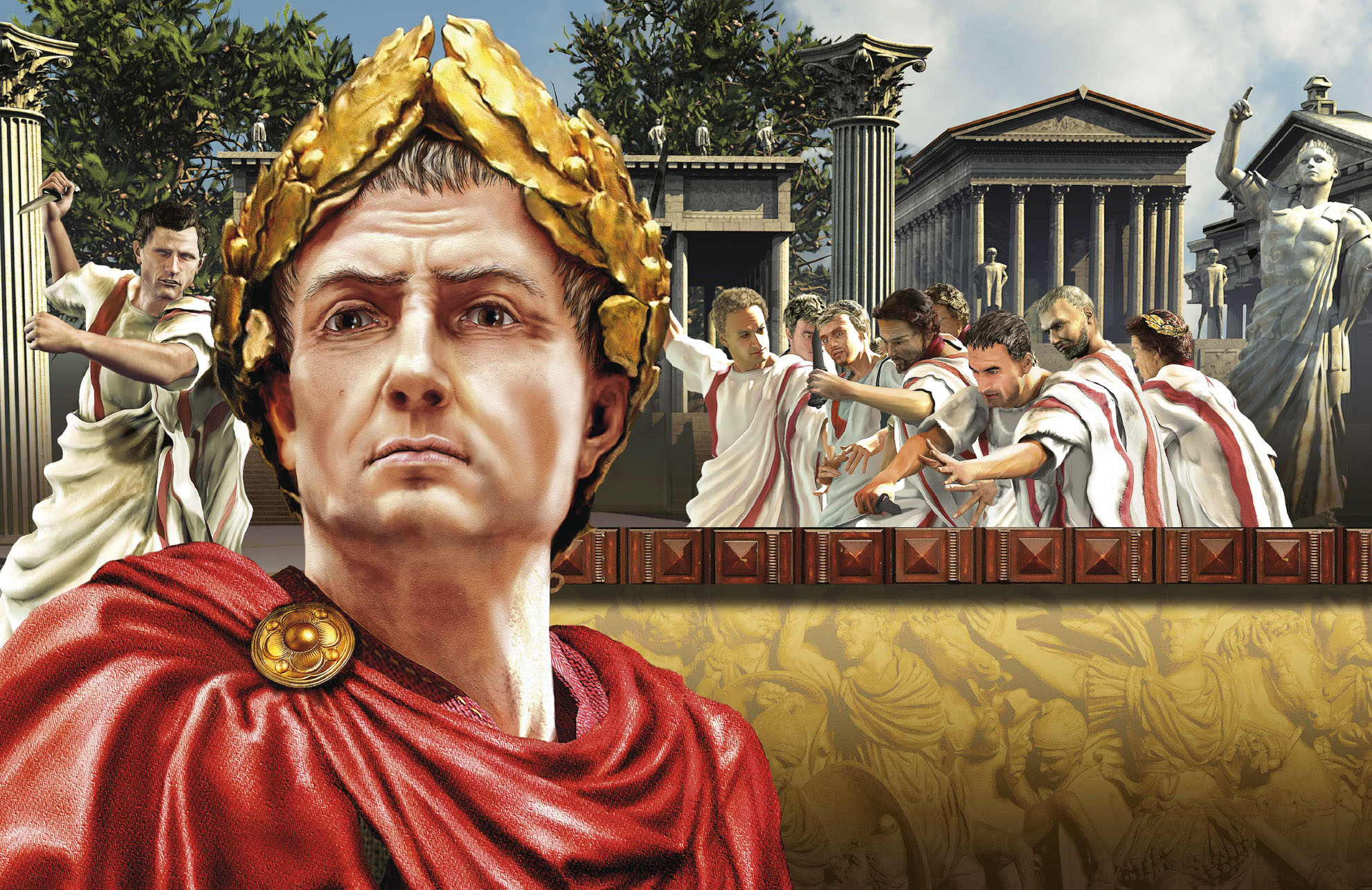
MURDER MOST FOUL The killing of Julius Caesar by his political rivals remains a fascinating chapter in the rich story of Ancient Rome
ILLUSTRATION: © KURT MILLER/SALZMANART.COM, ALAMY X1
“Et tu Brute? Ten fall Caesar!” Julius Caesar utters these final words less than halfway through Shakespeare’s play which, in spite of its name, is more concerned with the tragic hero, Brutus. Te playwright was confident that he did not need to translate the three Latin words; even today, this is one of a handful of Latin phrases most people know.
The scene, where the greatest and most powerful man in Rome is repeatedly stabbed during a meeting of the Senate – killed by conspirators whose leader likes Caesar personally but feels that he must die for the good of the state – is both spectacular and dramatic. Over the centuries it has been depicted countless times in art, on stage, in print and on screen, the latter both seriously (by Rex Harrison in Cleopatra) or parodied by Kenneth Williams in Carry On Cleo. It is just the sort of over-the-top death Hollywood loves to invent - much like in Gladiator where the Emperor Commodus is killed in the arena of the Colosseum rather than being strangled in the bath.